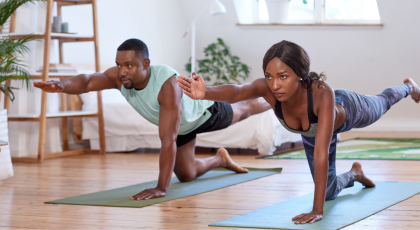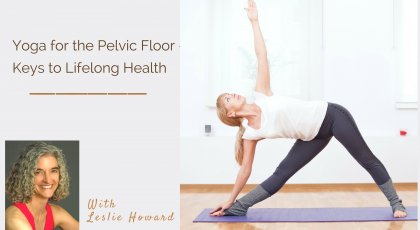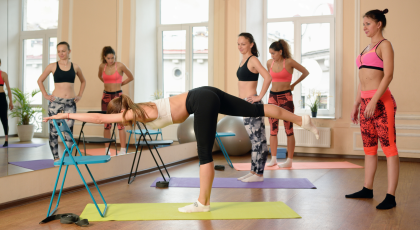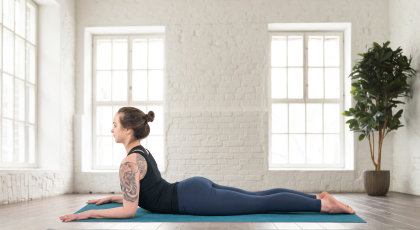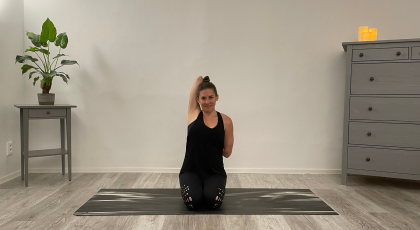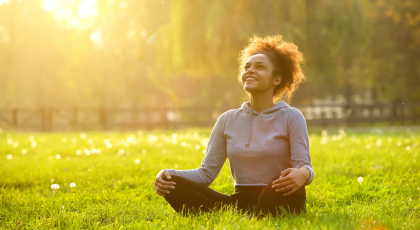View basket (0 items $0.00)
Error message
- Notice: unserialize(): Error at offset 5 of 154 bytes in variable_initialize() (line 1202 of /home/dh_6hcdc2/yogau.online/docroot/includes/bootstrap.inc).
- The file could not be created.
- The file could not be created.
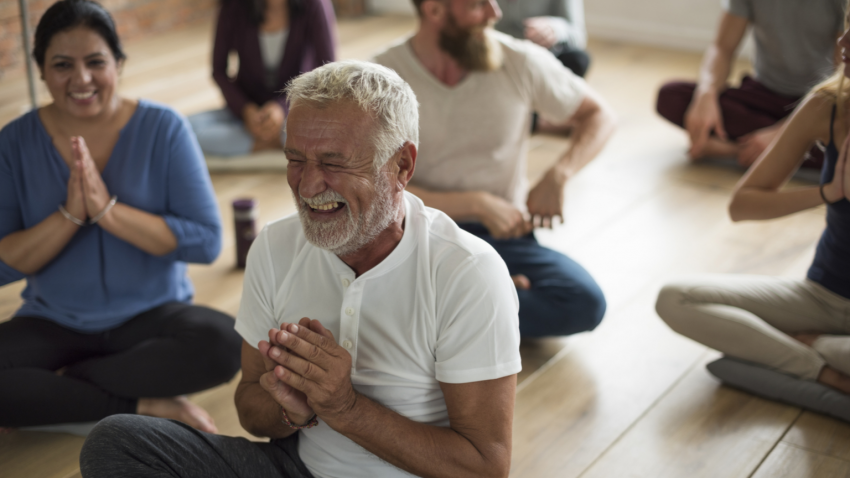
Aging and Dementia: Can Yoga Help Keep the Brain Active and Healthy?
Can yoga practice help stave off dementia? I certainly hope so since genetics suggest that I’m going to be staring dementia straight in the eye. Except, of course, it doesn’t stare back. Instead, it frets, repeatedly asking, “What day is it?” “What time is it?” and “Where are we?”
When we start asking these questions frequently, we may be at the beginning of what is expected to be a steep climb toward a diagnosis of Alzheimer’s disease and other dementias. At the moment, one out of every eight people, 65 and older, have dementia. By 85, the number is one in two. And as a society, we’re getting older.
Look for advice on Alzheimer’s prevention, and you’ll find a reasonably consistent message. There are no guarantees, but based on studies done so far, you can substantially decrease your risk if you:
-
get plenty of exercise
-
eat a healthy diet
-
refrain from smoking and excessive alcohol consumption
-
avoid high blood pressure, diabetes, heart disease, and stress
-
stay mentally and socially engaged
Yoga’s Brain Benefits 
Is there anything on that list that doesn’t happen automatically with a committed yoga practice? People who practice asana seriously do more than the 30 minutes five times a week prescribed as an exercise program.
Vigorous work in the poses not only raises your heart rate but it’s also weight-bearing, which can help strengthen bones and preserve the ability to balance. For a yogi, the body provides its own gym.
Prolonged yoga practice can lead us to a healthy diet and an abstemious lifestyle, whether we want it or not. No rule says you have to stop drinking, smoking, and eating red meat to practice yoga, but somehow many longtime practitioners find these things less interesting over time. And to prevent diabetes, heart disease, and high blood pressure? Don’t smoke, don’t drink to excess, eat well, and exercise.
Yoga and Chronic Stress
Chronic stress can quadruple your risk of dementia. The ability to help control stress is one of yoga practice’s superpowers. The effect is easy to measure and well documented.
A recent study found that yoga practice reduces the stress hormone cortisol and increases brain function in older adults. That’s important because excessive cortisol wreaks havoc in the brain, hampering nerve cell growth and accelerating cognitive decline.
Forging New Pathways, Making New Friends 
Commit yourself to yoga, and you’ll have plenty of mental stimulation. Soon you’ll be learning the Sanksrit names of poses. There are sequences to remember, like dance steps, only slower, new poses to learn, new neural pathways to construct, new places to bring intelligence into your body.
Social contact? If you come to a registered class once a week, you will gradually build a yoga community. How large or small you’d like it to be is your choice.
Is it just me, or do others think we should look at ways to integrate yoga more deeply into our preventative health planning?
I’m looking under “Brain” and “Loss of Memory” in the Curative Asanas for Various Diseases section in the late B.K.S. Iyengar’s seminal book, Light on Yoga. What did Iyengar recommend for supporting memory and brain function? Sirsasana (Headstand Pose) and Salamba Sarvangasana (Shoulderstand Pose) and their variations.
In addition, he recommends forward bends, backbends, Nadi Shodhana (Alternate Nostril Breathing), and in the “Brain” section, Ganda Bherundasana (Formidable Face Pose).
Considering that Iyengar, who lived to be 94 years old, was still writing books in his 90s, we might do well to continue our yoga practice—with appropriate modifications for our changing bodies—as we move into the senior territory.
Join Us for Our New Pop-Up Workshop!
Learn How to Slow or Reverse Common Subclinical Degenerative Changes in the Spine and Reverse the Effects of Poor Posture
Explore more research on this topic from YogaUOnline and B Grace Bullock: Yoga Improves Memory and Brain Functioning in Older Adults, Study Finds.
Learn more yoga basics and helpful practice tips from Eve Johnson - Yoga Strap Magic: Use a Long Strap to Put Your Shoulders in Place.
Reprinted with permission from My Five-Minute Yoga Practice.

Eve Johnson taught Iyengar Yoga for 18 years before being introduced to Spinefulness in 2016. Convinced by the logic, clarity, and effectiveness of Spineful alignment, she took the teacher training course and certified in July 2018. Eve teaches both Spinefulness and Spineful Yoga at Prodigy Movement, in Vancouver. For class information, go to http://spinefulness.ca.
Featured Courses
